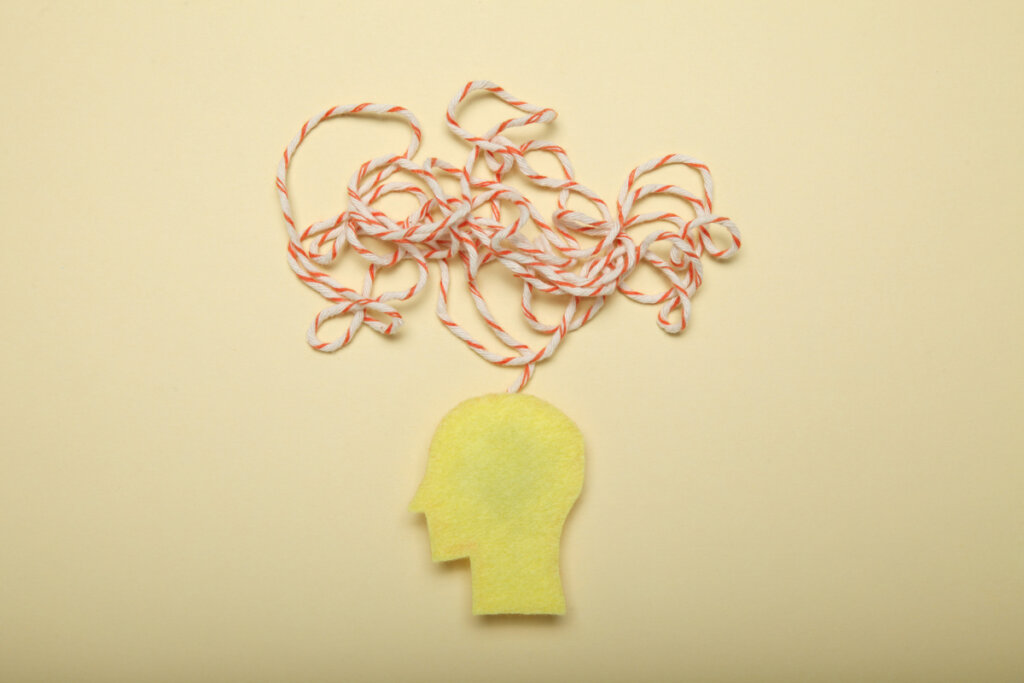Postformal Thought: A Stage of Thinking We Don't All Reach


Written and verified by the psychologist Valeria Sabater
Physical development culminates, as you know, in adulthood. However, what about cognitive development? Is there a defined biological ceiling or is it potentially limitless? To answer this question, we turn to Jean Piaget. He claimed that postformal thought was the last stage of human cognitive development and the most sophisticated. In fact, he suggested that not everyone even reaches this stage.
This poses the question as to why we don’t all progress to the postformal thought stage. The answer is that achieving the ability to handle moral, emotional, logical, deductive, and even philosophical concepts isn’t easy. Indeed, sometimes, not even the academic environment and our education promote the ability to achieve this unique goal.
That said, it should be noted that this theory is only a proposal and that, as of today, it lacks a scientific basis. Nevertheless, it remains of great interest and tends to make us wonder if it wouldn’t be worthwhile to develop some of our cognitive and emotional areas a little more. Let’s find out more.

Postformal thought
Piaget claimed that knowledge of reality starts from discovery and from the way in which the child, adolescent, or adult organizes, gives meaning to, and builds that information. This process, according to the father of genetic epistemology, develops gradually, in four stages:
- Sensorimotor stage.
- Preoperational stage.
- The stage of concrete operations.
- Formal operations stage.
Each of these periods is defined by the development of increasingly complex cognitive operations. However, Piaget pointed out that between 15-20 years of age, its progress tends to stabilize or slow down. It’s from here that inter-individual differences between some people and others are evidenced.
Postformal thinking is the fifth stage of our cognitive development and appears between the ages of 20 and 40.
Postformal thinking can be defined as the cognitive process by which you try to align your thinking to solve the daily dilemmas and challenges that appear in your adult life. In fact, it’s often said that postformal thinking develops every time you adequately face a problem, such as the loss of a job, the loss of a family member, etc.
Dimensions that define postformal thinking
Harvard University (USA) conducted a study that claimed that postformal thinking is acquired as we establish new academic, social, emotional, and philosophical resources, etc. They state it’s the type of knowledge that we acquire when we get to know ourselves better and also the world that surrounds us.
Postformal thinking is characterized by the ability to deal with inconsistencies, contradictions, and compromises. Indeed, life is complex and uncertain, and some people are better at dealing with this inherent uncertainty. As such, postformal thinking is both a personality style and a way of thinking (Papalia & Martorell, 2017).
On the other hand, it should be noted that we can all develop it. In fact, this fifth stage of Piaget’s cognitive thought requires us to focus on a series of specific dimensions.
Self-knowledge
This involves knowing yourself so you can process what surrounds you with greater openness, and without fear and insecurities, in a curious way. As a matter of fact, few things are more decisive than establishing the capacity for self-reflection, and the correct management of your emotions. Added to that is the ability to be yourself and to know what you want and what you need.
The ability to relativize
Knowing how to apply the kind of flexible thinking in which you don’t understand the world in a dichotomous way, forms the basis of postformal thinking. If you use this approach, you’re not limited to processing reality in absolute terms of good or bad, or black or white. On the contrary, there are always intermediate aspects that you know you have to deal with and process.
Cognitive flexibility
This ability of postformal thinking arises from the recognition that each person’s perspective is only one possibility among others. Cognitive flexibility implies a restructuring of knowledge and experiences and the generation of problem-solving alternatives. It’s an adaptive response to the changes that occur in any given situation and context (Krzemien, et al., 2020).
Integration
Another characteristic of postformal thought is the integration of emotions with rational analysis. This ability is useful to respond to life situations in which the appearance of stereotypes and prejudices is a threat (Krzemien, et al., 2020).
Dialectic thought
Postformal thought is dialectical. It involves the integration of beliefs, knowledge, and experiences with the contradictions and inconsistencies of daily life. Postformal thought implies relativism added to the ability to integrate and synthesize information regarding multiple perspectives, ideas, or experiences (Krzemien, et al., 2020).
Accept contradictions and draw your own conclusions
The aforementioned study from Harvard University explains that postformal thought is made up of four stages. These are systematic, meta-systematic, paradigmatic, and cross-paradigmatic. It’s common that when you reach adulthood you reach, at least, the first stages.
Your first achievements in the assumption of postformal operations involve accepting contradictions. In fact, there are few things that define your reality as much as constant ambiguities and eternal contradictions. Accepting this reality and striving to reach your own conclusions is essential.

Postformal thinking goes beyond the ability to solve problems
Often, one way of defining intelligence involves understanding it as the ability to solve problems creatively in order to adapt to any circumstance. However, postformal thought goes further. That’s because it allows for something more. It concerns your ability to rise up as a competent person and to face many of life’s challenges.
Postformal thinking takes a critical view of things. It always tries to understand why problems appear. In other words, despite solving them, it reflects on everything that causes suffering. For example, concern, crisis, and uncertainties. Thus, in many cases, this type of cognitive approach is related to the findings of philosophy.
Finally, remember that philosophy encourages you to constantly ask yourself questions to reflect on your existential conflicts. Without a doubt, it’s good to possess practical and formal intelligence that allows you to solve any unforeseen event. Furthermore, having the ability to think more broadly, lucidly, and transcendently about yourself and the world around you undoubtedly brings you closer to genuine wisdom.
All cited sources were thoroughly reviewed by our team to ensure their quality, reliability, currency, and validity. The bibliography of this article was considered reliable and of academic or scientific accuracy.
- Bueno-Gómez, N. (2017). Conceptualizing suffering and pain. Philosophy, Ethics, and Humanities in Medicine, 12(1), 1-11.
- Commons, M. L., & Ross, S. N. (2008). What postformal thought is, and why it matters. World Futures, 64(5-7), 321-329.
- Sinnott, Jan D. (1998). The development of logic in adulthood: postformal thought and its applications. New York. doi:10.1007/978-1-4757-2911-5
- Kallio, Eeva; Helkama, Klaus (March 1991). “Formal operations and postformal reasoning: A replication”. Scandinavian Journal of Psychology. 32 (1): 18–21. doi:10.1111/j.1467-
- Krzemien, D., Pietrantuono, L., Carnero Rodriguez, M. P., & Urquijo, S. (2020). Pensamiento postformal y perspectivas neopiagetianas.
- Labouvie-Vief, Gisela (1992). “A Neo-Piagetian perspective on adult cognitive development”. Intellectual development. Sternberg, Robert J., Berg, Cynthia A. Cambridge: Cambridge University Press. p. 220.
- Papalia, D. y Martonell. (2017). Desarrollo humano (13a). McGrallWill.
This text is provided for informational purposes only and does not replace consultation with a professional. If in doubt, consult your specialist.








